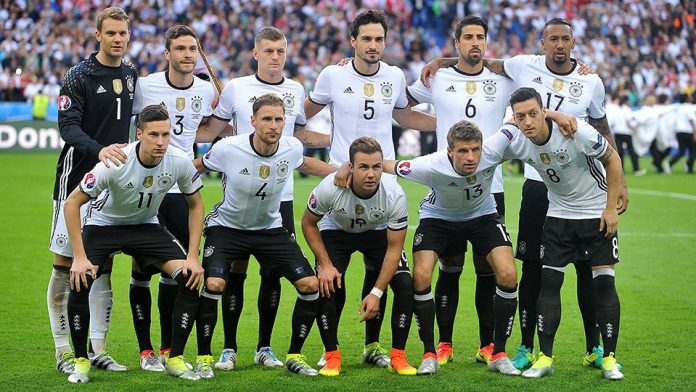The last time a nation was successfully able to defend a World Cup was when Brazil did so in 1962.
History will look to repeat itself this year, as the reigning champions Germany seem to be in formidable form and don’t seem to have any plans of loosening their hold on the trophy in Russia.
World Cup 2018: Preview – Costa Rica, Serbia and Switzerland
It is expected to be a race for 2nd place in Group E between Costa Rica, Serbia and Switzerland to book a place…
World Cup History
Due to political reasons, the German Football team was divided into West Germany, East Germany and Saarland in 1950 following the events related to the Second World War.
However, the original German team before this division participated in their first World Cup in 1934 where they were placed 3rd. After the division, all three German teams were banned from the 1950 World Cup held in Brazil as they were still occupied by the allies and also because they were a partitioned state.
All three German teams gained recognition by FIFA and were allowed to participate in the 1954 World Cup where West Germany went on to be crowned champions with a 3-2 win over Hungary in the final.
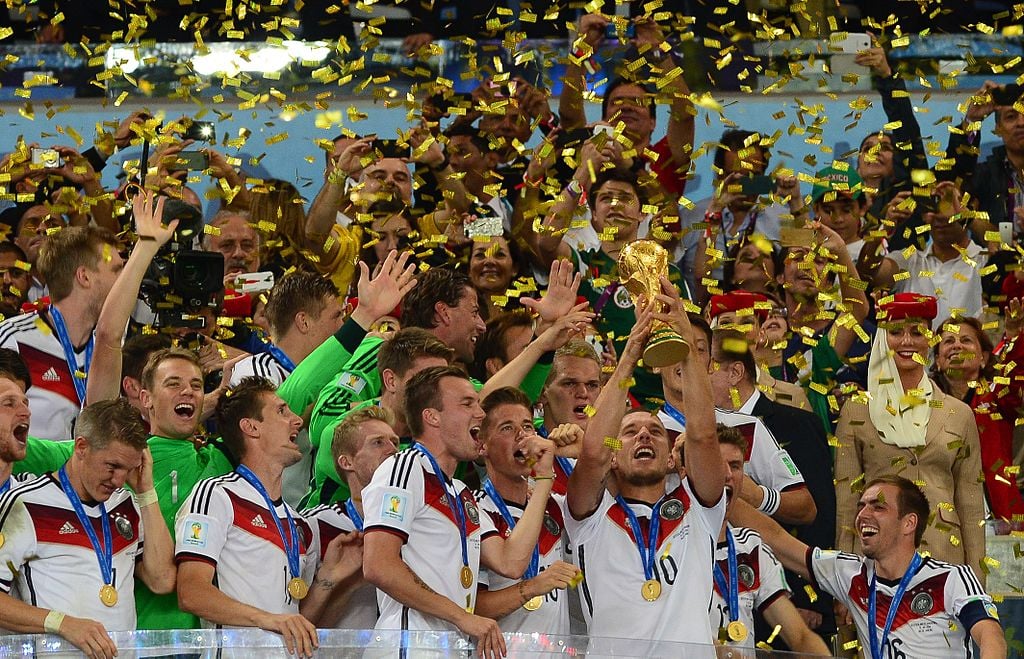
West Germany went on to become champions in 1974 and 1990 and were placed runners up in 1966, 1982 and 1986. However, the other 2 German teams failed to make as much of an impact in the World Cups to come.
The segregation of the German team ended by the 1994 World Cup and Germany now played as one undivided nation. They went on to become runners-up in 2002 where they lost to Brazil 2-0 and a Mario Gotze goal in the 113th minute saw them defeat Argentina 1-0 to be crowned World Cup Champions in 2014.
How They Qualified
After their 2014 World Cup victory in Brazil, the Germans have been in the driving seat for most of the games they’ve played. After qualifying for the UEFA Euros in 2016, they went on unbeaten in the group stages, won the quarter finals on a penalty shootout (6-5) to Italy but were unfortunately eliminated after a 2-0 loss to hosts France in the semi-finals.
They defeated every team they faced in the 1st round of World Cup qualification, with a 7-0 and 8-0 victory over San Marino over two games being the highlight. They fielded a somewhat inexperienced team in the FIFA Confederation’s Cup in 2017 but went on to win the tournament undefeated with a 1-0 victory over Chile in the finals.
Thereafter they continued their 1st round World Cup qualification, with a 2-1 win over Czech Republic, a 6-0 win over Norway, a 5-1 win over Azerbaijan and sealed their ticket to Russia with a convincing 3-1 win over Northern Ireland. They drew 1-1 with Spain and lost 1-0 to Brazil in two friendly games.
Manager & Playing Style
Joachim Low is a former German football player and the current coach of the National German football squad. Before taking over the hot seat of German football, he served in the capacity of manager for different teams.
He began his career in 1994 where he coached German teams such as FC Winterthur and VfB Stuttgart at club level. He then progressed to managing the Turkish clubs Fernerbahce and Adanaspor FC.
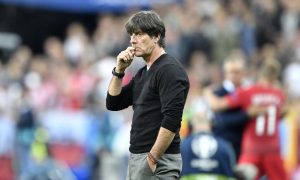
In 2004 he was named assistant manager of the German national team under Jurgen Klinsmann who was the manager at the time. After Klinsmann decided not to renew his contract, Low assumed his place as manager and the rest is history.
Under his reign, Low guided Germany to a Euro 2008 runners-up place, a World Cup victory in 2014 and a Confederations Cup victory in 2017. He was named the FIFA World Coach of the Year and also the German Football Manager of the Year in 2014.
His tactical guide to near invincibility includes a 4-2-3-1 formation where the goalkeeper acts as a sweeper in order that defenders can take risks and play more attacking football. This attacking mind-set might be the key for German success in Russia.
Strengths & Weaknesses
Low has been at the helm of German football for over a decade which has given him a period of trial and error to create a near perfect squad for this year’s World Cup. Their run of form has proved to everyone that they aren’t a team to be taken lightly.
One weakness that the Germans might have is the void the retirements of Philip Lahm and Bastian Schweinsteiger have left in the team. Captain Lahm and Schweinsteiger played pivotal roles in their victory in Brazil in 2014.
Their replacements Joshua Kimmich and Toni Kroos respectively seem to fit in the squad but it is uncertain whether they will have the impact of the past two veterans.
Key Players
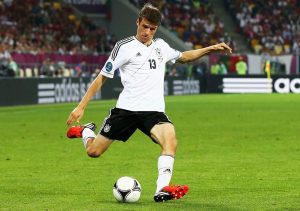
Thomas Muller will take part in his 3rd World Cup this year. He was a driving force behind Germany’s victory in Brazil and has been star player at club level for giants Bayern Munich in the past few years.
His governance in the midfield and his eye for goal will be important if Germany are to come close to what they did in 2014.
Another one to keep an eye on, 25-year-old Julian Draxler was a part of the 2014 German Squad in Brazil. He recently joined the French powerhouse Paris Saint-Germain and has been gaining form ever since.
He captained an inexperienced German squad during the 2017 Confederation’s Cup and eventually led his side to victory.
One to Watch
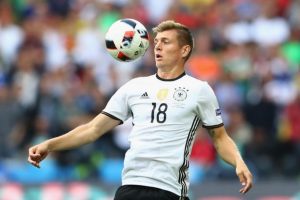
Another key governor of the strong German midfield is the 28-year-old Toni Kroos. After his transfer from Bayern Munich to Real Madrid, the right footer has been able to command the midfield of both Real Madrid and Germany.
He assisted thrice and scored twice in the seven games he played in the 2010 World Cup whilst his latest season with Real Madrid saw him assist seven times and score 5 times.
Final Squad
Goalkeepers: Manuel Neuer, Marc-Andre ter Stegen, Kevin Trapp
Defenders: Jerome Boateng, Matthias Ginter, Jonas Hector, Mats Hummels, Joshua Kimmich, Marvin Plattenhardt, Antonio Rudiger, Niklas Sule
Midfielders: Julian Brandt, Julian Draxler, Leon Goretzka, Ilkay Gundogan, Sami Khedira, Toni Kroos, Thomas Mueller, Marco Reus, Sebastian Rudy, Mesut Ozil
Forwards: Mario Gomez, Timo Werner
>> For more World Cup News Click Here <<

